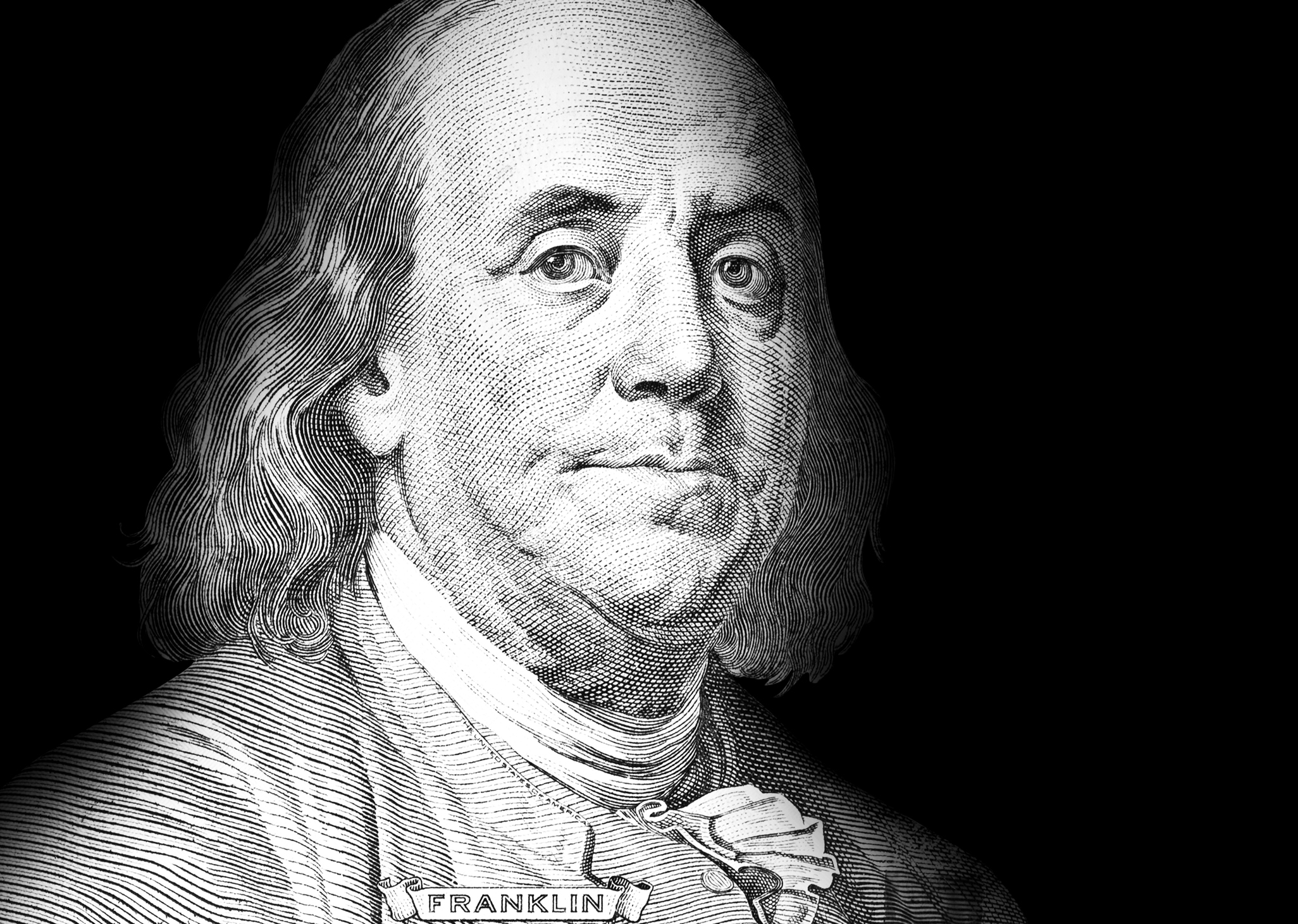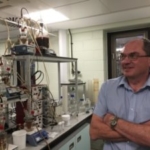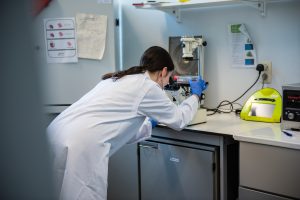ISAPP board members look back in time to respond to Benjamin Franklin’s suggestion on how to improve “natural discharges of wind from our bodies”

Benjamin Franklin, born in 1706, was a multi-talented politician and scientist best known for his discoveries related to electricity. Historians say he was scientifically pragmatic—aiming not just to advance theories, but to solve the most vexing problems of the day.
In 1780, when Franklin read about the intellectual contests being held by The Royal Academy of Brussels (today known as the Royal Flemish Academy of Belgium for Science and the Arts – KVAB), he took it upon himself to write an amusing letter that contained a suggestion for an important scientific challenge: “To discover some Drug wholesome & not disagreable, to be mix’d with our common Food, or Sauces, that shall render the natural Discharges of Wind from our Bodies, not only inoffensive, but agreable as Perfumes.”
Over two centuries later, the organization was prompted for a reply. Writer Brian Van Hooker wrote to the KVAB: ‘I am a writer at MEL Magazine and I am working on a piece about a letter that Benjamin Franklin sent to your organization’s predecessor, the Royal Academy of Brussels, 240 years ago. The letter was entitled “Fart Proudly,” and I’m reaching out to see if anyone at your organization might like to issue a reply to Mr. Franklin’s letter’.
 Since ISAPP board member Prof. Sarah Lebeer (University of Antwerp, Belgium) is a KVAB Belgian Young Academy alumna with microbiome knowledge, Bert Seghers from the Academy asked her to help draft a reply. However, since the gut microbiome is not her main area of expertise, she consulted her fellow ISAPP board members. For example, Bob Hutkins, author of a popular ISAPP blog post on intestinal gas, immediately sent her a paper entitled Identification of gases responsible for the odour of human flatus and evaluation of a device purported to reduce this odour with the comment: “The next time a graduate student complains about their project, refer them to this paper and the 5th paragraph of the methods”—a paragraph that describes how scientists in the experiment were tasked with rating the odor of flatus and differentiating between the different smells of sulphur-containing gases.
Since ISAPP board member Prof. Sarah Lebeer (University of Antwerp, Belgium) is a KVAB Belgian Young Academy alumna with microbiome knowledge, Bert Seghers from the Academy asked her to help draft a reply. However, since the gut microbiome is not her main area of expertise, she consulted her fellow ISAPP board members. For example, Bob Hutkins, author of a popular ISAPP blog post on intestinal gas, immediately sent her a paper entitled Identification of gases responsible for the odour of human flatus and evaluation of a device purported to reduce this odour with the comment: “The next time a graduate student complains about their project, refer them to this paper and the 5th paragraph of the methods”—a paragraph that describes how scientists in the experiment were tasked with rating the odor of flatus and differentiating between the different smells of sulphur-containing gases.
 But it was the answer of Prof. Glenn Gibson (University of Reading, UK) that was incorporated into the ‘formal’ reply to Franklin’s suggestion. “Your suggested topic on improving flatulence odour is amusing, but indeed also very relevant. An outstanding answer to the contest as you formulate it would be ground-breaking,” wrote Profs. Lebeer and Gibson. They noted that gases in the intestine are mainly released by the bacteria living there—but especially the sulphate reducing bacteria contribute to the “traditional” smell due to their production of noxious H2S —and that advances in probiotic and prebiotic science could one day lead to reduced (and “nicer smelling”) gas production by switching hydrogen gas production to methane or even acetate and away from H2S.
But it was the answer of Prof. Glenn Gibson (University of Reading, UK) that was incorporated into the ‘formal’ reply to Franklin’s suggestion. “Your suggested topic on improving flatulence odour is amusing, but indeed also very relevant. An outstanding answer to the contest as you formulate it would be ground-breaking,” wrote Profs. Lebeer and Gibson. They noted that gases in the intestine are mainly released by the bacteria living there—but especially the sulphate reducing bacteria contribute to the “traditional” smell due to their production of noxious H2S —and that advances in probiotic and prebiotic science could one day lead to reduced (and “nicer smelling”) gas production by switching hydrogen gas production to methane or even acetate and away from H2S.
Brian Van Hooker summarized: “In other words, Mr. Franklin, they’re working on it and, perhaps sometime within the next 240 years, your dream of non-smelly farts might just come true.”
The KVAB response to Benjamin Franklin concluded: “Your letter is a ripple through time. It may not surprise you that scientific questions can have effects across decades and even centuries. This idea remains the tacit hope of many scientists working together for the progress of humanity. We have not yet invented a reverse time machine, but we send our answer along with your question forward in time, hoping that it may inspire future scientists as your question inspired us.”
Read the MEL Magazine article here.
Read more about gut microbiota & intestinal gas here.



